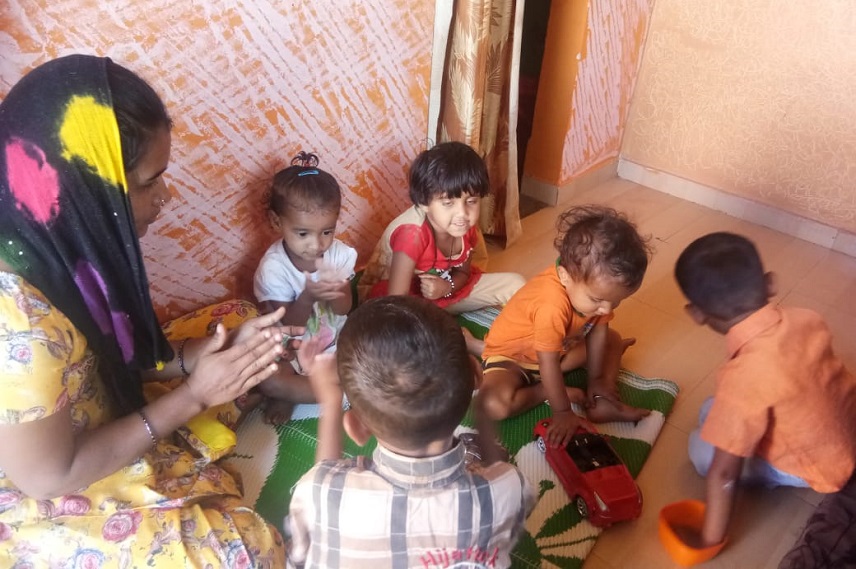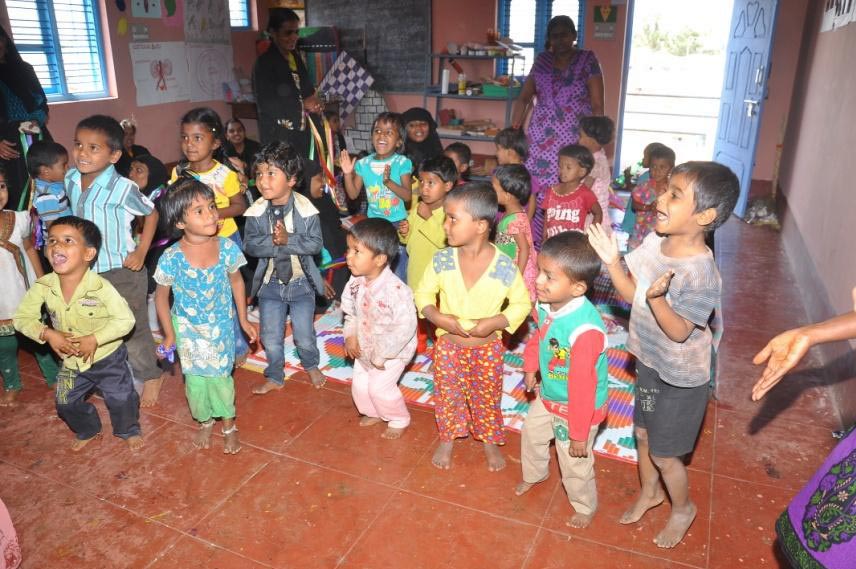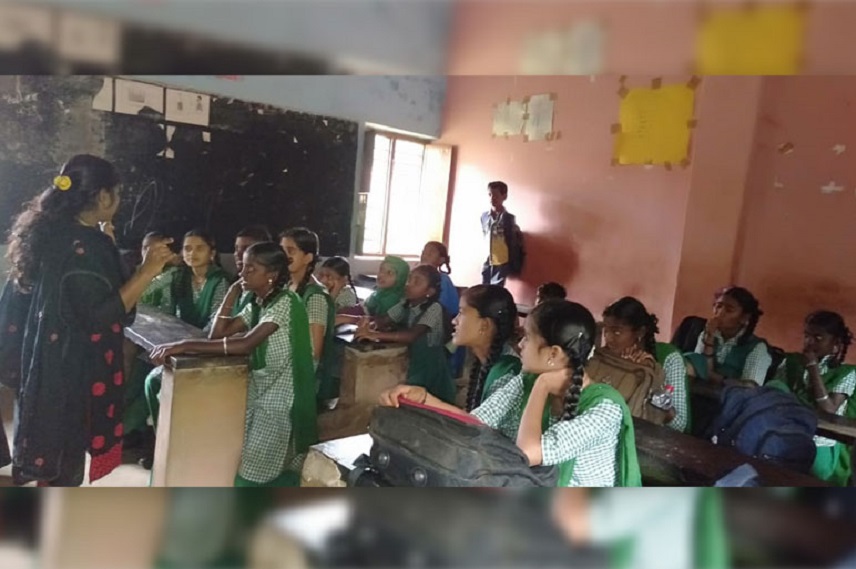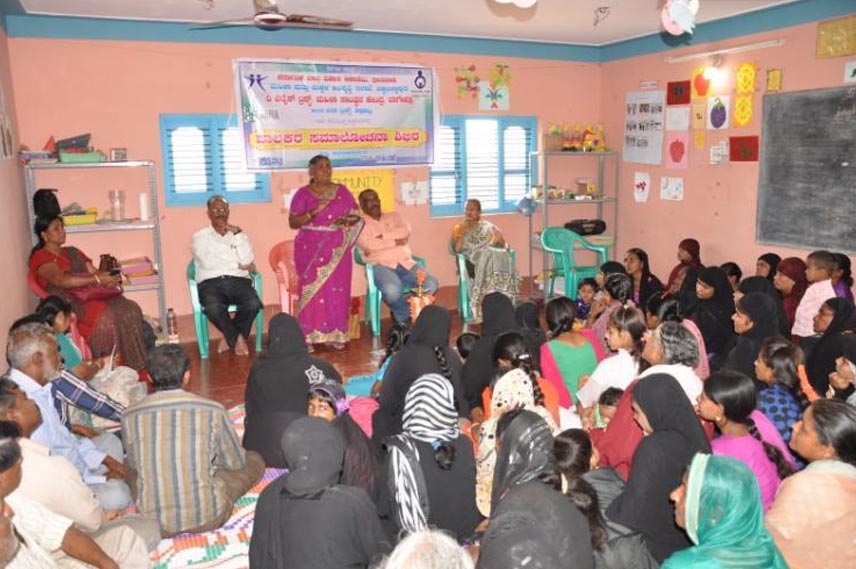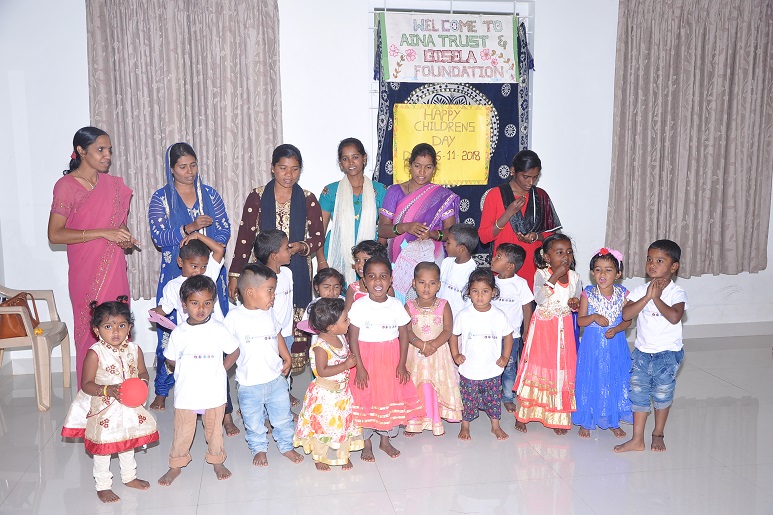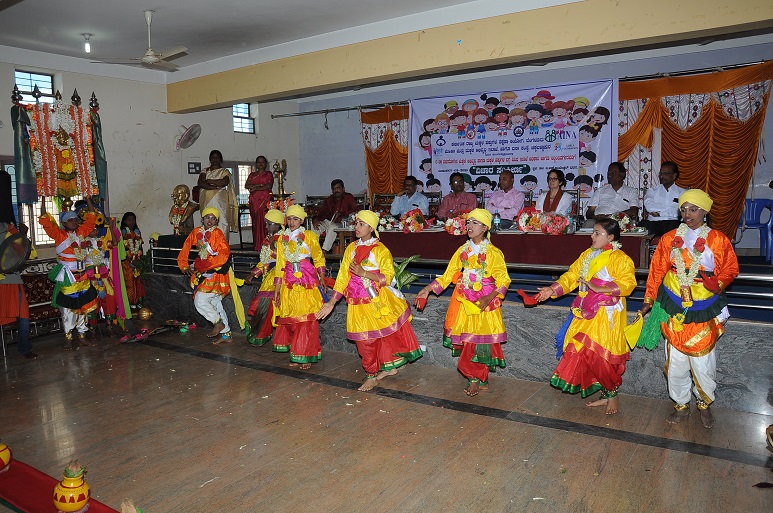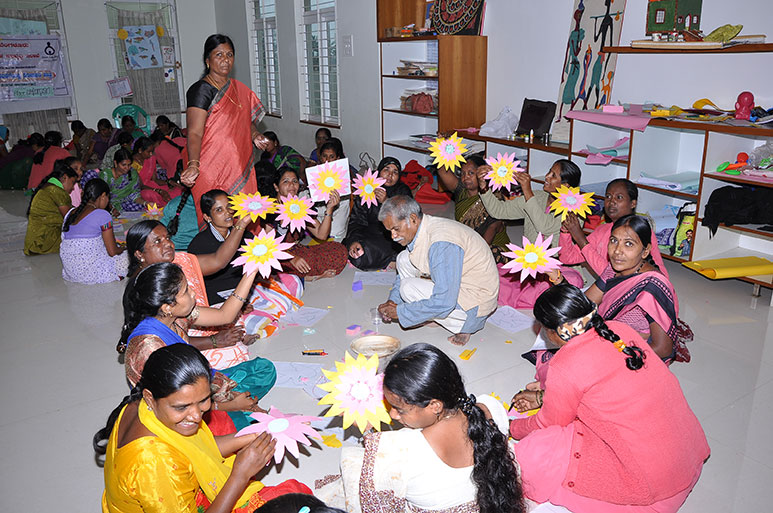AINA’s Vision, Mission & Mandate
Aina’ means mirror. True to its meaning, Aina strives to reflect the problems and hopes of the poorer sections of society in both rural and semi-urban areas – and to work towards an egalitarian society.
Aina is a Non-governmental Voluntary Organization working since 1997 from Bangalore, India, for the welfare and rights of the most socio-economically marginalised sections especially the deprived children and women. Aina has successfully guided communities to realise their disadvantaged situation, to reflect on their potential, to become aware of welfare needs and to assert their rights.
Aina’s programmes have made a significantly positive difference in the lives of hundreds of children, women and caregivers in the society.
Commitment of Aina
- AINA commits itself to the benefit of children, parents and caregivers from all sections of our society, and to enable the empowerment of the poor and marginalised sections, especially women and children, both from rural and urban areas.
- AINA is registered under the Indian Trust Act, Section 12-A of the Income Tax and FCR Act. The Government of Karnataka has recognised AINA as a charitable NGO.
- AINA is governed by four committed Trustees, who enrich the work by their different and relevant professional backgrounds – philosophy in Social Work, Educationist, Chartered Accountant and Lawyer. The programmes of AINA are directed and executed by the Executive Trustee – Mrs Mary Chelladurai, a Postgraduate in Social Work and an MPhil in Guidance and Counselling.
Goals and Key Objectives
- To ensure that every child experiences a meaningful and enriching childhood.
- To have community crèches for below three years old children whose mothers are daily-wage workers.
- To offer educational opportunities to single-parent children or children without parental care and to help them in their education and experience ‘childhood’.
- To help children with supplementary and nutritional suppor.
- To protect every child from any abuse and child right violations; to stop early child marriages and child trafficking.
- To educate parents and early-childhood educators on the growth patterns and developmental milestones of children.
- To work with the Government especially the Women and Child Welfare, Education and Health Departments.
- To train and strengthen the skills of Anganwadi supervisors and teachers on holistic growth and development of young children.
- To help in the immunisation camps and health care for children.
- To give awareness to the community and schools on child rights.
- To organise women from the marginalised sections, prioritise their issues as women and workers, build their economic base and provide them with a forum where they can be heard and exercise their rights.
Visible Results
- 325 children in the age group of 0-3 years and their mothers benefit directly every year in Chickballapur district through the 62 community-based early child care centres (ECCs). It impacts the growth (physical and cognitive) and health care of the children. The ECC relieves the mothers/parents to work at ease and bring additional income to the family.
- In the academic year 2019-20, seventy-seven school going children (30 boys and 39 girls) benefit directly through the mainstream education and counselling. These children are of single parents/semi-orphans and orphans staying with their grandparents or aunts.
- Increase awareness on the District Child Helpline and Child Welfare Committee to seek their interventions for any violation on the rights of the children such as child marriage, child trafficking, child begging and any abuses on children.
- Enhance the child care skills of the supervisors and teachers of Anganwadies from Chickballapur district through the regular training conducted in collaboration with the Women & Child Welfare Department. Also organised district level deliberation on Child Care, Protection and Development for the government officials, Anganwadi workers and child care-givers complementing and strengthening the programs of the Government.
- Established a workable model of “community-based child care” centres; the local illiterate and semi-illiterate women who got trained in child care, have been conducting 62 community-based crèches for the children of 0-3 years from the local community. The Care-givers homes have become the ‘child care centres’ serving their respective community.

